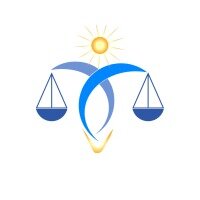Best Creditor Lawyers in Iraq
Share your needs with us, get contacted by law firms.
Free. Takes 2 min.
Or refine your search by selecting a city:
List of the best lawyers in Iraq
About Creditor Law in Iraq
Creditor law in Iraq governs the rights and responsibilities of creditors and debtors in financial transactions. It covers areas such as debt collection, loan agreements, and bankruptcy proceedings.
Why You May Need a Lawyer
You may need a lawyer in creditor matters in Iraq for various reasons, including negotiating settlements, enforcing payment agreements, defending against creditor lawsuits, and navigating complex legal procedures.
Local Laws Overview
In Iraq, creditor laws are primarily governed by the Civil Code, the Commercial Code, and the Bankruptcy Law. These laws outline the legal rights and obligations of creditors and debtors, including the process for debt collection and bankruptcy proceedings.
Frequently Asked Questions
Q: What legal remedies are available to creditors in Iraq?
A: Creditors in Iraq can seek legal remedies such as filing a lawsuit, obtaining a judgment, garnishing wages, or placing a lien on property.
Q: Can creditors force debtors into bankruptcy in Iraq?
A: Yes, creditors can initiate bankruptcy proceedings against debtors in Iraq if they meet certain criteria outlined in the Bankruptcy Law.
Q: Are there any limitations on debt collection practices in Iraq?
A: Yes, debt collectors in Iraq are subject to restrictions on their practices, including prohibitions on harassment, threats, and unfair tactics.
Q: How long does it typically take to resolve a creditor dispute in Iraq?
A: The length of time to resolve a creditor dispute in Iraq can vary depending on the complexity of the case and the court's schedule.
Q: Can a lawyer help me negotiate a settlement with a creditor in Iraq?
A: Yes, a lawyer can assist you in negotiating a settlement with a creditor in Iraq to reach a mutually acceptable agreement.
Q: What are the consequences of defaulting on a debt in Iraq?
A: Defaulting on a debt in Iraq can result in legal action by the creditor, including lawsuits, wage garnishment, and asset seizure.
Q: What are the rights of debtors in Iraq when dealing with creditors?
A: Debtors in Iraq have rights protected by law, including the right to fair treatment, privacy, and protection from harassment by creditors.
Q: Can creditors seize personal property in Iraq to satisfy a debt?
A: Creditors in Iraq can seize personal property to satisfy a debt through legal means, such as obtaining a court order for asset seizure.
Q: Are there alternative dispute resolution options available for creditor disputes in Iraq?
A: Yes, alternative dispute resolution methods such as arbitration and mediation can be used to resolve creditor disputes in Iraq outside of court.
Q: How can I find a reputable lawyer for creditor matters in Iraq?
A: You can find a reputable lawyer for creditor matters in Iraq by seeking recommendations, researching online reviews, and contacting legal professional organizations.
Additional Resources
For more information on creditor laws and legal assistance in Iraq, you can contact the Iraq Bar Association or seek guidance from the Ministry of Justice.
Next Steps
If you require legal assistance in creditor matters in Iraq, it is advisable to consult with a qualified lawyer who has experience in handling such cases. They can provide you with personalized advice and representation to protect your rights and interests.
Lawzana helps you find the best lawyers and law firms in Iraq through a curated and pre-screened list of qualified legal professionals. Our platform offers rankings and detailed profiles of attorneys and law firms, allowing you to compare based on practice areas, including Creditor, experience, and client feedback.
Each profile includes a description of the firm's areas of practice, client reviews, team members and partners, year of establishment, spoken languages, office locations, contact information, social media presence, and any published articles or resources. Most firms on our platform speak English and are experienced in both local and international legal matters.
Get a quote from top-rated law firms in Iraq — quickly, securely, and without unnecessary hassle.
Disclaimer:
The information provided on this page is for general informational purposes only and does not constitute legal advice. While we strive to ensure the accuracy and relevance of the content, legal information may change over time, and interpretations of the law can vary. You should always consult with a qualified legal professional for advice specific to your situation.
We disclaim all liability for actions taken or not taken based on the content of this page. If you believe any information is incorrect or outdated, please contact us, and we will review and update it where appropriate.
Browse creditor law firms by city in Iraq
Refine your search by selecting a city.








